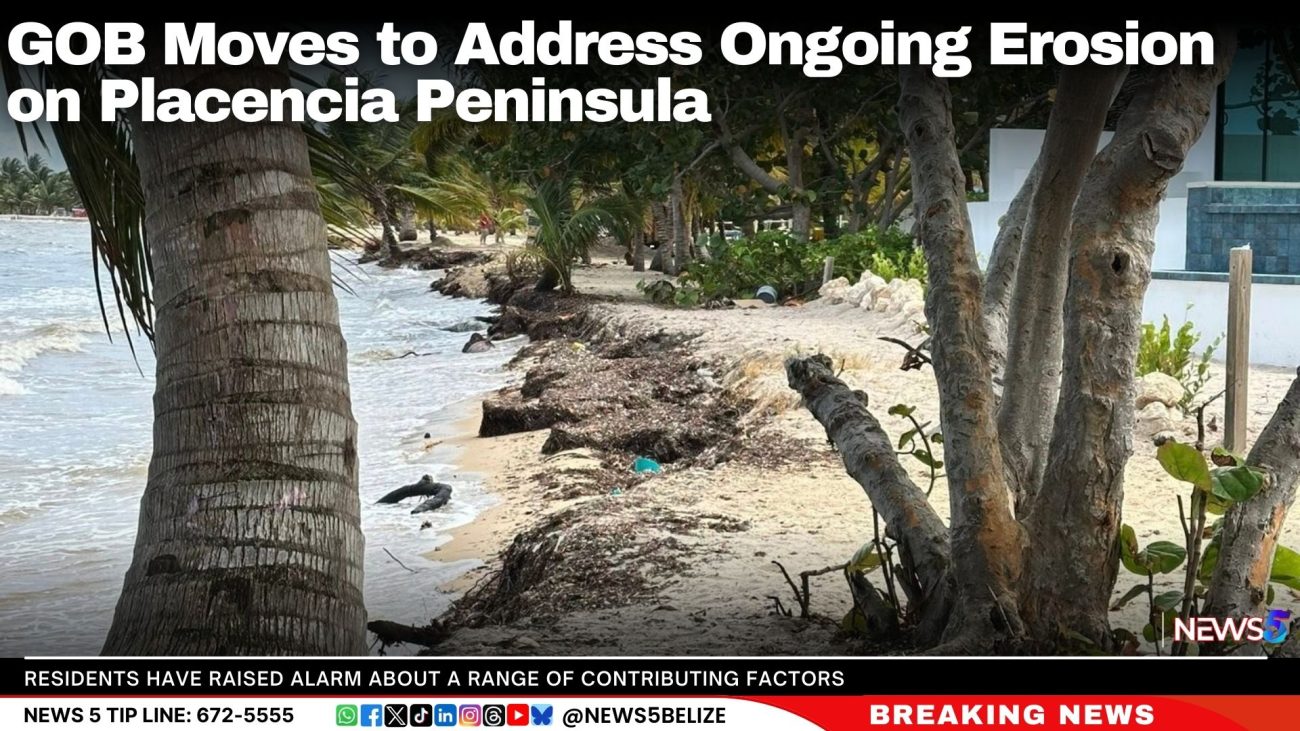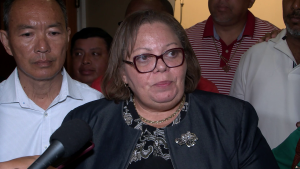GOB Moves to Address Ongoing Erosion on Placencia Peninsula
In response to growing concerns from residents of the Placencia Peninsula, three key government ministries have pledged urgent action to tackle the ongoing coastal erosion threatening the area. The Ministry of Sustainable Development, Climate Change and Solid Waste Management; the Ministry of Natural Resources, Petroleum & Mining; and the Ministry of Infrastructure Development and Housing convened this week to discuss a collaborative response to the escalating environmental issue.
According to a joint statement, the Government of Belize has acknowledged the erosion problem and committed to identifying and addressing both natural and human-induced factors contributing to the degradation of the coastline.
Officials stressed that the impacts of climate change continue to pose serious risks to Belize’s coastal communities, endangering not only natural resources and beaches but also private property and livelihoods.
Residents have raised alarm about a range of contributing factors, including the construction of structures that disrupt the natural movement of sediment and the extraction of sand in the area. The government noted that these concerns were central to discussions at the inter-ministerial meeting, where short-, medium-, and long-term solutions were considered.
As part of its immediate plan of action, the government outlined six key steps:
- Engage with local community leaders to ensure municipal stakeholders are informed and included in planning efforts.
- Improve communication between regulatory bodies overseeing permits related to mining, construction, and mangrove alteration.
- Rigorously enforce environmental regulations to prevent unauthorised activities that may worsen erosion.
- Increase the frequency of compliance inspections to monitor approved developments that could contribute to the problem.
- Present stakeholder concerns and proposed solutions to the Cabinet for swift consideration.
- Seek support for scientific studies to inform sustainable long-term decision-making.
The ministries also expressed appreciation for ongoing research being conducted by the University of South Florida and for the active role played by local communities in highlighting the issue.







Facebook Comments